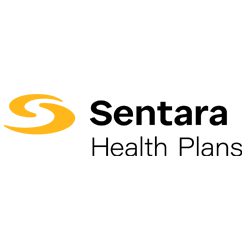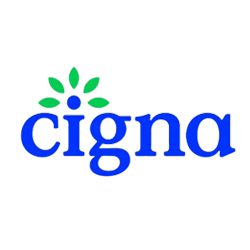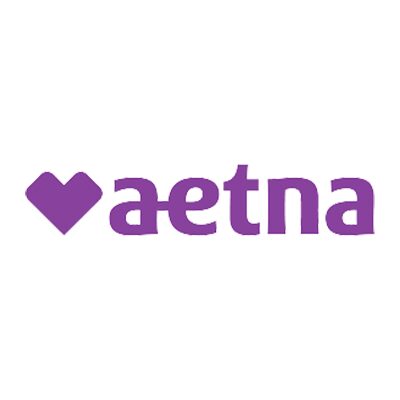Richmond, VA Residential Services

Iron Bridge Recovery Center offers premier residential services to the residents of Richmond, VA and the surrounding areas.
Iron Bridge’s residential program is typically 30 days in length but may be tailored based on need and or individual progress. Everyone is unique and progresses at different rates in the early stages of recovery. The main goal is to build recovery resiliency. Iron Bridge will remain transparent regarding all aspects of your care including the length of stay in residential programming.
Iron Bridge provides a co-ed setting, tailored to meet the needs of our clients. Our residential program emphasizes a structured community approach while establishing not only early recovery skills but also a long-term foundation for recovering adults.
Iron Bridge's Residential Treatment Services:
At Iron Bridge, every day is structured to provide intensive intervention and to educate, encourage, and empower each resident’s movement into a drug and alcohol-free life. Each day is full and designed to optimize our time with our clients and set them up for success when they leave Iron Bridge.
Our inpatient residential treatment services allow those suffering from substance use and co-occurring disorders to focus on learning to live life without alcohol or other drugs and to develop the tools needed to navigate life without them.
We know that choosing an inpatient residential treatment center is a difficult decision because it means stepping away from family, work and comfortable routines.
Services:
Treatment:
Why Residential Treatment?
Addiction is a complex disorder that affects an individual’s brain function and behavior, leading to an inability to control the use of substances despite harmful consequences. Residential treatment, also known as inpatient treatment, provides a structured and supportive environment for individuals struggling with addiction. This comprehensive approach is effective for several reasons, including providing a stable environment, comprehensive care, removal from triggers, peer support, professional guidance, skill development, and ample time for healing.
Specialized Programs for Richmond, VA
At Iron Bridge Recovery, we recognize that every individual’s journey to recovery is unique. That’s why we offer specialized programs designed to address specific needs and provide tailored treatment options for residents of Richmond, VA. Iron Bridge Recovery Center in Chester, Va, provides residential addiction treatment services at our beautiful, homelike facility. Here are some key reasons for its effectiveness:
Structured and Supportive Environment
Stability and Routine:
Residential treatment offers a stable, structured environment where individuals follow a daily routine. This stability helps patients focus on their recovery without the distractions and stressors of everyday life. The consistent schedule includes therapy sessions, group activities, and personal time, creating a balanced approach that fosters discipline and accountability.
Continuous Support:
Residents have 24/7 access to medical and therapeutic support. This continuous care ensures that any physical or psychological issues that arise can be addressed immediately, reducing the risk of relapse.
Comprehensive Care
Holistic Treatment:
Residential programs often provide a range of therapies that address the physical, psychological, and social aspects of addiction. These can include individual counseling, group therapy, and holistic treatments like yoga and meditation. This holistic approach ensures that all aspects of the individual’s well-being are considered and treated.
Integrated Treatment for Co-occurring Disorders:
Many individuals with addiction also suffer from co-occurring mental health disorders, such as depression or anxiety. Residential treatment centers are equipped to address these dual diagnoses, offering integrated treatment plans that cater to both the addiction and the mental health issues.
Removal from Triggers
Safe and Controlled Environment:
Being in a residential treatment facility removes individuals from environments that may trigger substance use. This includes people, places, and situations associated with their addiction. In this controlled setting, patients can focus entirely on their recovery without external pressures or temptations.
Focus on Recovery:
The distraction-free environment allows individuals to concentrate solely on their recovery. Without the constant bombardment of everyday triggers, they can develop the skills and resilience needed to maintain sobriety.
Peer Support
Sense of Community:Living with others who are going through similar struggles fosters a sense of community and shared experience. This communal living situation provides emotional support and a sense of belonging. Peer support is a powerful motivator, as individuals can share their experiences, offer encouragement, and hold each other accountable.
Learning from Others:Residents can learn from each other’s experiences and coping strategies. This shared learning environment helps individuals develop new ways of thinking and behaving that support their recovery.
Professional Guidance
Coping Strategies:
Residential treatment programs teach individuals essential coping strategies and life skills. These skills help them manage stress, avoid relapse, and build healthier lifestyles. Techniques such as stress management, emotional regulation, and effective communication are crucial for maintaining sobriety.
Relapse Prevention:
Programs include relapse prevention planning, which equips individuals with the tools and strategies needed to handle potential triggers and high-risk situations once they leave the facility. This forward-thinking approach ensures that patients are prepared for the challenges they may face in the real world.
Time for Healing
Extended Treatment Duration:
The length of stay in residential treatment allows individuals to engage deeply with the recovery process. This extended period is critical for addressing underlying issues and building a solid foundation for long-term sobriety. Recovery is a gradual process, and the extended time in treatment provides the necessary duration for significant behavioral and psychological changes to take root.
Gradual Reintegration:
The extended period in a supportive environment helps individuals gradually adjust to sober living. This gradual reintegration into society increases the likelihood of maintaining sobriety post-treatment. Patients can slowly reintroduce themselves to everyday responsibilities and challenges, with continued support from the treatment center.
Do you or a loved one need residential treatment?
Addiction is a complex and multifaceted disorder characterized by the compulsive use of substances or engagement in behaviors despite negative consequences. Recognizing the signs of addiction is crucial for early intervention and effective treatment. For most people, residential treatment is the most effective way to stop an addiction.
Even if some of the following behavior has been going on for a while or is severe, alcohol and drug rehabilitation centers in Virginia like Iron Bridge Recovery Center can still help. Please reach out if you or a loved one shows these signs.
- Tolerance and Withdrawal:
- Tolerance: The need to use increasing amounts of the substance to achieve the same effect.
- Withdrawal Symptoms: Physical symptoms that occur when the substance use is reduced or stopped, such as sweating, shaking, nausea, and irritability.
- Changes in Appearance:
- Weight Fluctuations: Significant weight loss or gain, often due to changes in appetite or neglecting nutrition.
- Poor Hygiene: Neglect of personal grooming and cleanliness.
- Sleep Disturbances: Insomnia or excessive sleeping, often related to the effects of the substance.
- Health Issues:
- Frequent Illnesses: Reduced immune function leading to more frequent colds, infections, and illnesses.
- Chronic Conditions: Development or worsening of chronic health conditions like heart disease, liver damage, or respiratory issues.
- Cravings:
- Intense Urges: Strong desires or compulsions to use the substance.
- Preoccupation: Constantly thinking about the next opportunity to use the substance.
- Mental Health Disorders:
- Depression: Persistent feelings of sadness, hopelessness, and lack of interest in activities.
- Anxiety: Heightened feelings of worry, nervousness, and fear.
- Paranoia and Hallucinations: In severe cases, users may experience paranoia or hallucinations, especially with substances like methamphetamine or hallucinogens.
- Mood Swings:
- Emotional Instability: Rapid and unpredictable changes in mood, from euphoria to irritability or depression.
- Aggression and Irritability: Increased sensitivity to stress and propensity for anger or aggression.
- Compulsive Use:
- Loss of Control: Inability to limit the amount or frequency of substance use.
- Ritualistic Behavior: Establishing routines around the use of the substance, such as specific times or places for use.
- Neglect of Responsibilities:
- Work or School Performance: Decline in productivity, missing deadlines, or absenteeism.
- Neglecting Duties: Ignoring family responsibilities or household chores.
- Risky Behaviors:
- Dangerous Activities: Engaging in risky activities like driving under the influence, unprotected sex, or using dirty needles.
- Legal Issues: Involvement in illegal activities, arrests, or legal problems related to substance use.
- Secrecy and Isolation:
- Hiding Use: Concealing the substance use or lying about the amount used.
- Isolation: Withdrawing from family, friends, and social activities.
- Relationship Problems:
- Conflicts: Increased arguments and conflicts with loved ones.
- Withdrawal from Relationships: Growing distance and lack of communication with friends and family.
- Financial Issues:
- Unexplained Expenses: Spending large sums of money on substances or related activities.
- Borrowing or Stealing: Asking for money frequently, stealing, or selling possessions to fund substance use.
- Changes in Social Circles:
- New Friendships: Forming new friendships with individuals who support or encourage the substance use.
- Loss of Old Friends: Losing contact with long-term friends who do not use substances.
- Impaired Judgment:
- Poor Decision Making: Making decisions that are irrational or harmful, often related to obtaining or using the substance.
- Lack of Foresight: Inability to foresee the consequences of actions, especially those related to substance use.
- Memory Problems:
- Forgetfulness: Frequent lapses in memory, particularly short-term memory.
- Blackouts: Periods of amnesia during or after substance use, particularly with alcohol.
- Concentration Issues:
- Difficulty Focusing: Inability to concentrate on tasks or conversations.
- Distraction: Easily distracted and unable to complete tasks or follow through with plans.
Recognizing the signs of addiction
Recognizing the signs of addiction involves looking at a wide range of physical, psychological, behavioral, social, and cognitive indicators. Early detection is key to effective intervention and treatment, helping individuals reclaim their lives from the grip of addiction. If you or someone you know is showing these signs, seeking professional help from a healthcare provider or addiction specialist is crucial.
Iron Bridge Recovery Center in Chester, VA, provides a safe, stable environment for residential treatment. We employ an integrated approach to treat the whole person, including clinical, psychiatric, and holistic care to ensure that the mind, body, and soul are treated and ready for long-term recovery.











